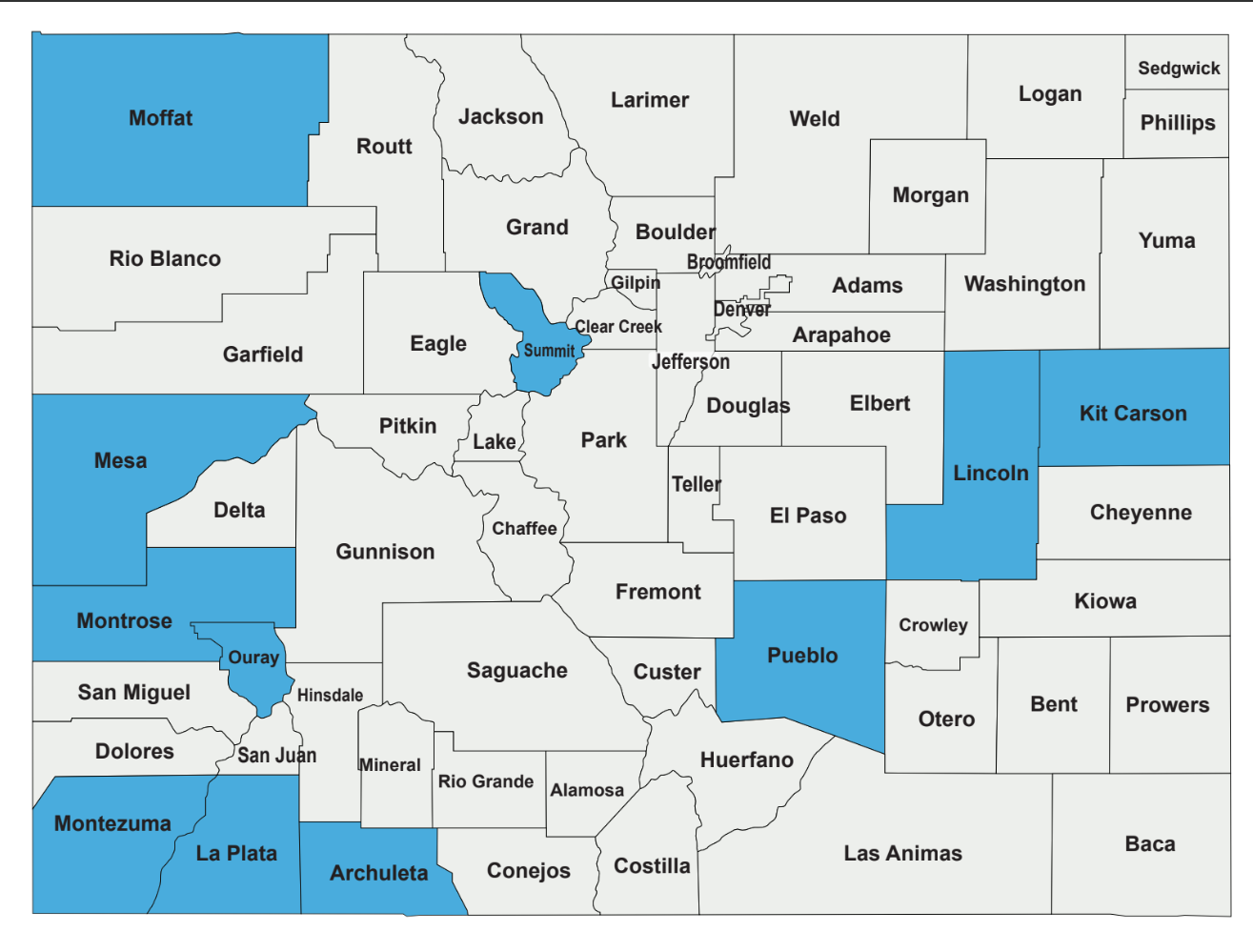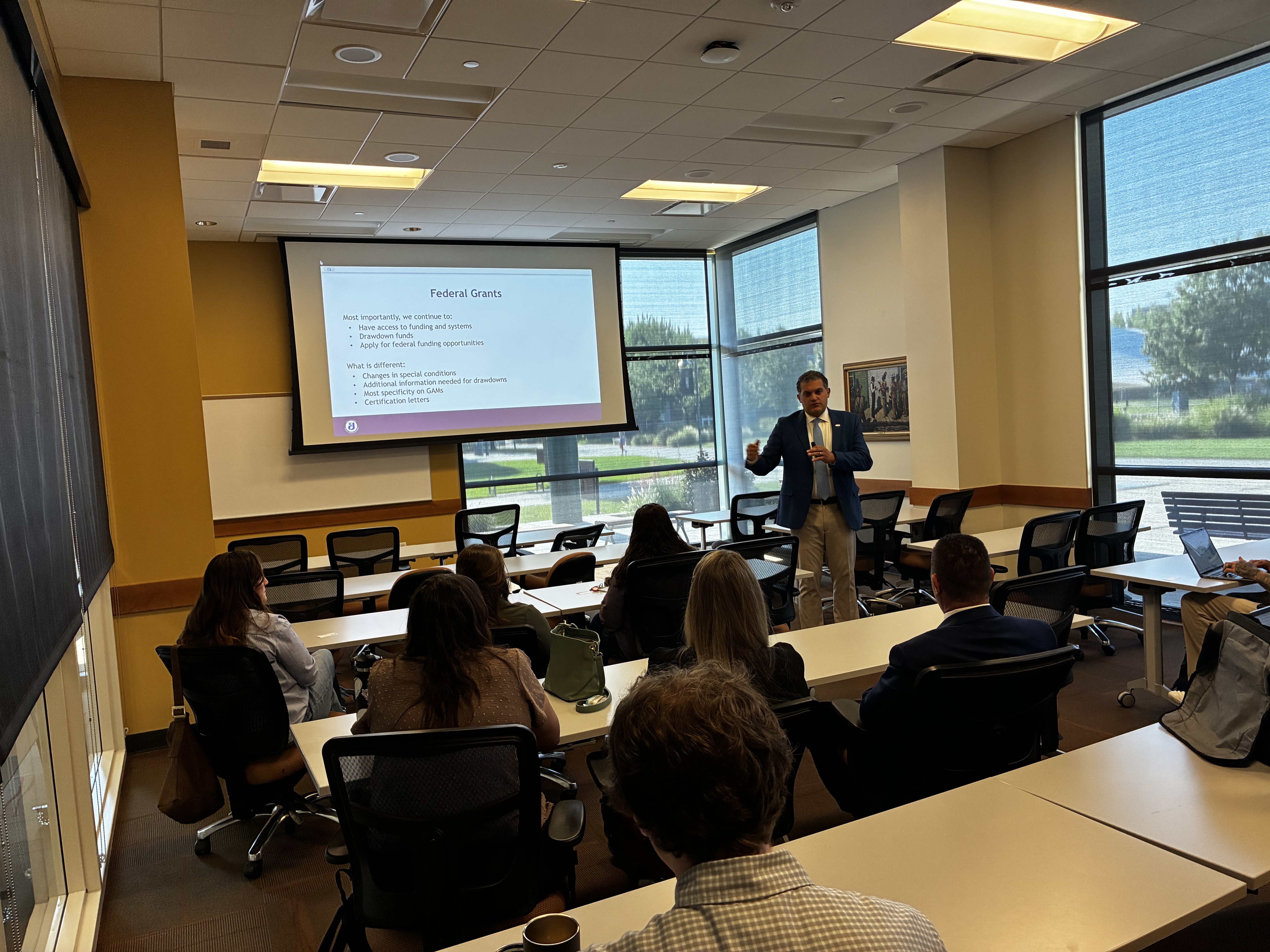The Division of Criminal Justice (DCJ) completed a multi-week tour across Colorado, traveling more than 2,800 miles. This distance is equivalent to driving from Denver to Atlanta and back. The tour included stops in eleven towns to hear directly from communities about the challenges and opportunities they face in strengthening public safety.
Visits included stops in the following towns:
- Grand Juction
- Montrose
- Ouray
- Cortez
- Durango
- Pagosa Springs
- Breckenridge
- Craig
- Pueblo
- Limon
- Burlington
The purpose of the tour was simple yet significant: to hear from the communities and agencies it serves, particularly those in rural areas. Leadership sat down with local officials, nonprofit partners, law enforcement agencies, victim advocates, and residents to better understand their experiences and priorities.
“This was about showing up where people are,” said Matthew Lunn, Director of the Division of Criminal Justice. “Every town has unique strengths, but they also face unique challenges. By meeting in their spaces, we could see firsthand what’s working well and where additional support is needed.”
unique challenges. By meeting in their spaces, we could see firsthand what’s working well and where additional support is needed.”
One of the consistent themes throughout the tour was the importance of ensuring that rural communities have equal access to resources, funding, and support. In places where agencies operate with lean staffing and limited budgets, the value of collaboration is magnified.
The Grand Junction Daily Sentinel highlighted the stop on the Western Slope, capturing the spirit of these conversations and underscoring the importance of rural voices in shaping statewide policy and programs.
Local agencies shared examples of effective local programs, while also candidly discussing gaps from the need for more victim services to the importance of specialized training for law enforcement and community corrections staff. These conversations reinforced that the best solutions are built in partnership with communities leading the way.
 The tour reaffirmed DCJ’s role as a preferred partner in advancing public safety, supporting victims of crime, and helping individuals successfully reenter society after incarceration.
The tour reaffirmed DCJ’s role as a preferred partner in advancing public safety, supporting victims of crime, and helping individuals successfully reenter society after incarceration.
As DCJ wraps-up its first Director-led Listening Tour, one thing is clear, DCJ’s work requires walking alongside Colorado’s communities, urban and rural, to build trust, strengthen relationships, and ensure every voice is heard in shaping a safer, more just future.
